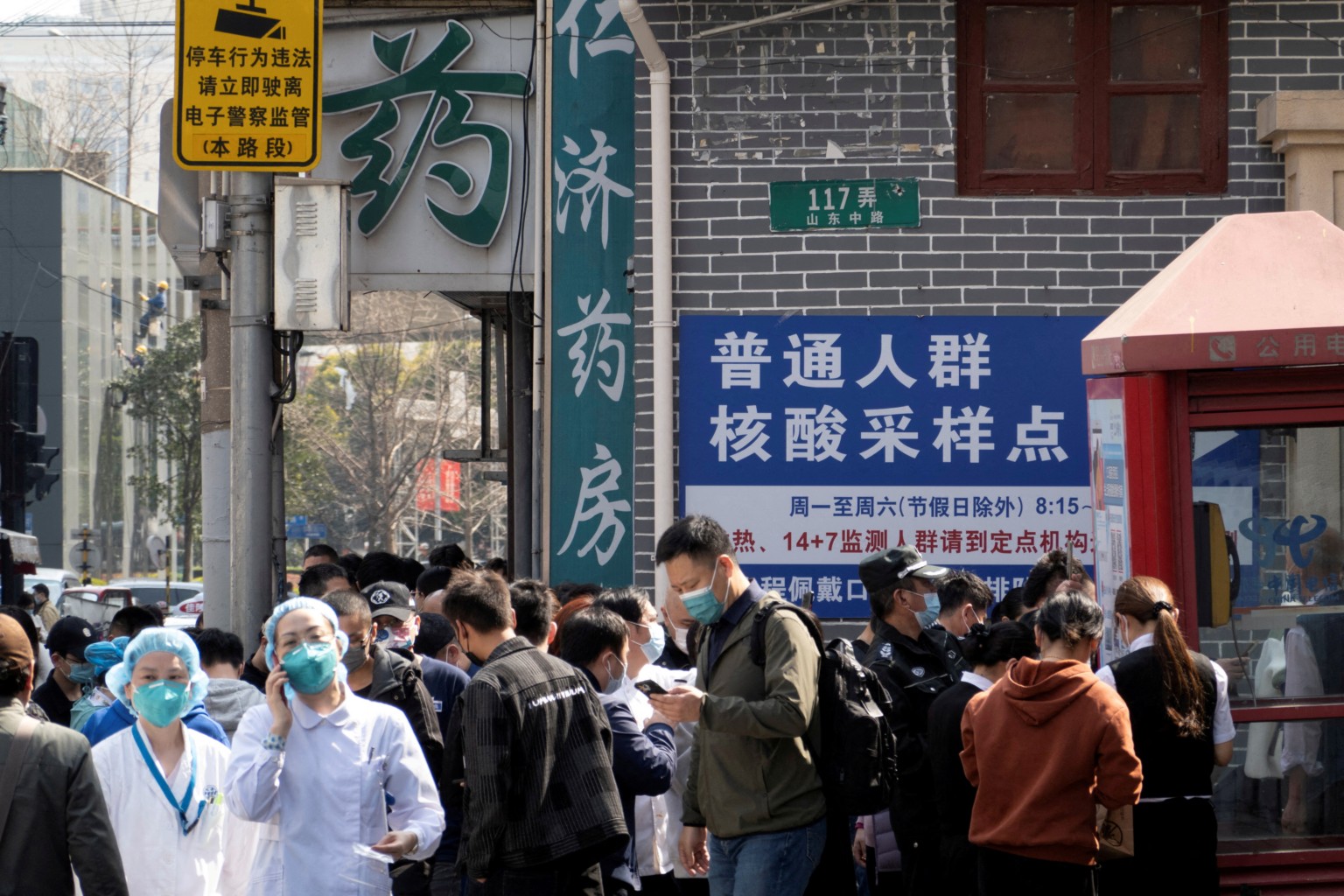China eases Covid-19 rules as healthcare system comes under strain from surge in cases
Sign up now: Get insights on Asia's fast-moving developments

Residents line up outside a nucleic acid testing site of a hospital in Shanghai, China, on March 11, 2022.
PHOTO: REUTERS
Follow topic:
BEIJING - China has relaxed its stringent Covid-19 management policy as the country's healthcare system comes under strain from the worst outbreak in two years, caused by the highly infectious Omicron variant of the coronavirus.
It is now allowing those with mild symptoms to go into centralised quarantine instead of being hospitalised, while also relaxing rules for when people can be discharged from hospital, said the National Health Commission after it updated the policy on Tuesday (March 15).
Previously, those infected would be taken directly to hospitals.
Under the new rules, those with mild symptoms would only be transferred from centralised quarantine to a hospital if their condition worsens.
The health authority also lowered the bar for allowing those with a CT value - an indicator of the viral load in their body - equal to or higher than 35 to be discharged from hospitals.
Previously, they could go home only if their CT value was equal to or higher than 40. The higher the CT value, the lower the viral load present in the patient.
Health experts acknowledge that this has led to patients who are no longer infectious continuing to take up hospital beds and draining medical resources unnecessarily.
Recovered patients will also need to undergo only seven days of home "health monitoring" instead of a 14-day quarantine.
The latest policy change comes as the country faces its worst outbreak since the virus started spreading from the city of Wuhan in early 2020, with the number of infections this year already exceeding the total number for all of last year.
There were 2,627 cases - both domestically transmitted and imported - recorded on Wednesday, down from a total of 3,290 the day before, based on the latest figures released by the National Health Commission.
Among those in the latest tally, 1,310 were asymptomatic.
The local authorities in Jilin said that close to 95 per cent of positive cases in the north-east province, which is battling the biggest outbreak in the country, are either asymptomatic or have mild symptoms.
The province, which recorded 742 locally transmitted cases on Wednesday and 415 asymptomatic cases, is building eight temporary hospitals with nearly 12,000 beds and two quarantine facilities to cope with the surge in infections.
Last week, the Chinese authorities also approved the use of antigen self-test kits, a signal that the highly contagious Omicron variant is pushing the limits of China's Covid-19 management system.
These kits are meant to help detect cases early, the authorities said.
Vice-premier Sun Chunlan, who is in charge of health issues, has instructed Jilin officials to roll out self-test kits for early detection in schools, sampling 20 per cent of students daily, according to state news agency Xinhua on Wednesday.
The virus spread through a student dormitory in Jilin Agricultural Science and Technology University last week, infecting nearly 60 students and prompting the authorities to remove the university’s top official.
State media has been quick to debunk the notion that the relaxation in China's zero-Covid-19 strategy points to the health authorities giving up on their battle to stem the spread of the virus, and is "lying flat" like other countries that have chosen to co-exist with Covid-19.
"Tang ping", or "lie flat" has become a buzzword since last year to describe a social movement in China rejecting societal pressure to be part of the rat race.
China cannot afford to "lie flat" when it comes to Covid-19, argued a Global Times editorial on Wednesday.
"If tens of millions of people are infected, the Chinese people cannot endure it, the Chinese healthcare system cannot carry such a burden, and there is no way to talk about normal economic and social life," said the editorial.

